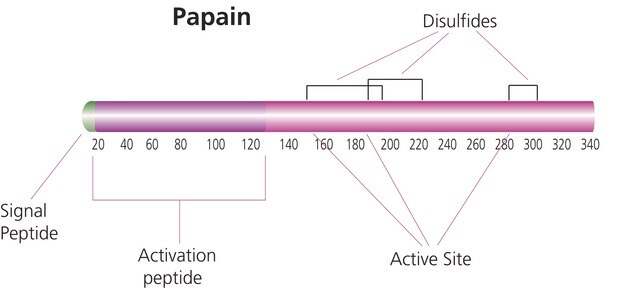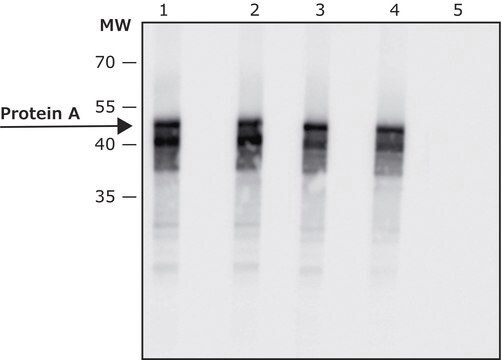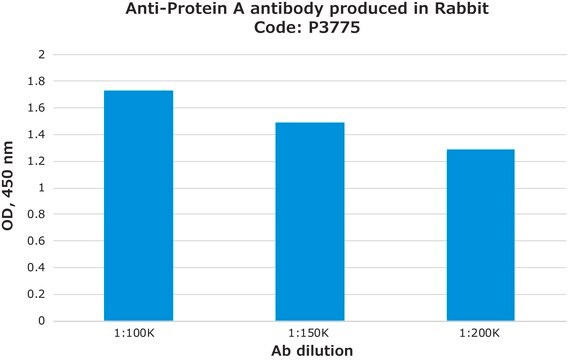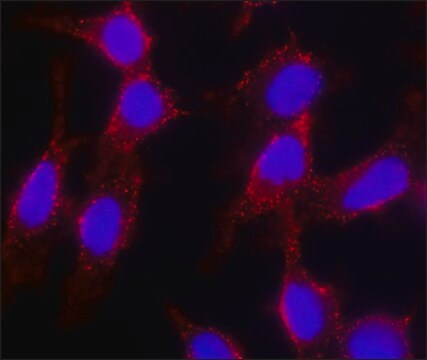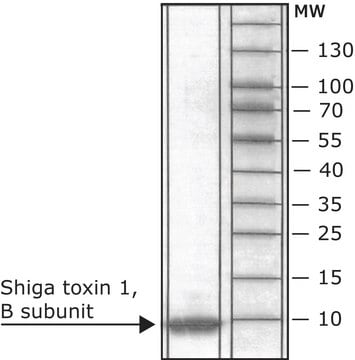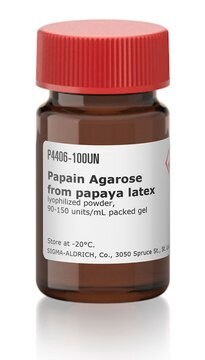B3150
Monoclonal Anti-Protein A−Biotin antibody produced in mouse
clone SPA-27, purified immunoglobulin, buffered aqueous solution
Synonyme(s) :
Monoclonal Anti-Protein A
About This Item
Produits recommandés
Source biologique
mouse
Niveau de qualité
Conjugué
biotin conjugate
Forme d'anticorps
purified immunoglobulin
Type de produit anticorps
primary antibodies
Clone
SPA-27, monoclonal
Forme
buffered aqueous solution
Technique(s)
direct ELISA: 1:80,000-1:160,000
Isotype
IgG1
Conditions d'expédition
dry ice
Température de stockage
−20°C
Modification post-traductionnelle de la cible
unmodified
Vous recherchez des produits similaires ? Visite Guide de comparaison des produits
Catégories apparentées
Description générale
Spécificité
Immunogène
Application
Actions biochimiques/physiologiques
Forme physique
Notes préparatoires
Stockage et stabilité
Clause de non-responsabilité
Vous ne trouvez pas le bon produit ?
Essayez notre Outil de sélection de produits.
Code de la classe de stockage
10 - Combustible liquids
Classe de danger pour l'eau (WGK)
nwg
Point d'éclair (°F)
Not applicable
Point d'éclair (°C)
Not applicable
Faites votre choix parmi les versions les plus récentes :
Déjà en possession de ce produit ?
Retrouvez la documentation relative aux produits que vous avez récemment achetés dans la Bibliothèque de documents.
Notre équipe de scientifiques dispose d'une expérience dans tous les secteurs de la recherche, notamment en sciences de la vie, science des matériaux, synthèse chimique, chromatographie, analyse et dans de nombreux autres domaines..
Contacter notre Service technique
